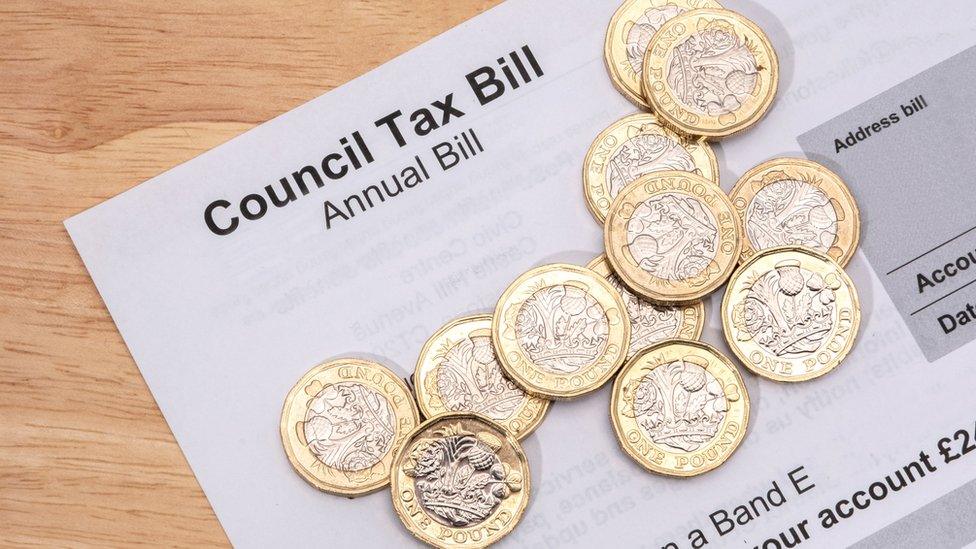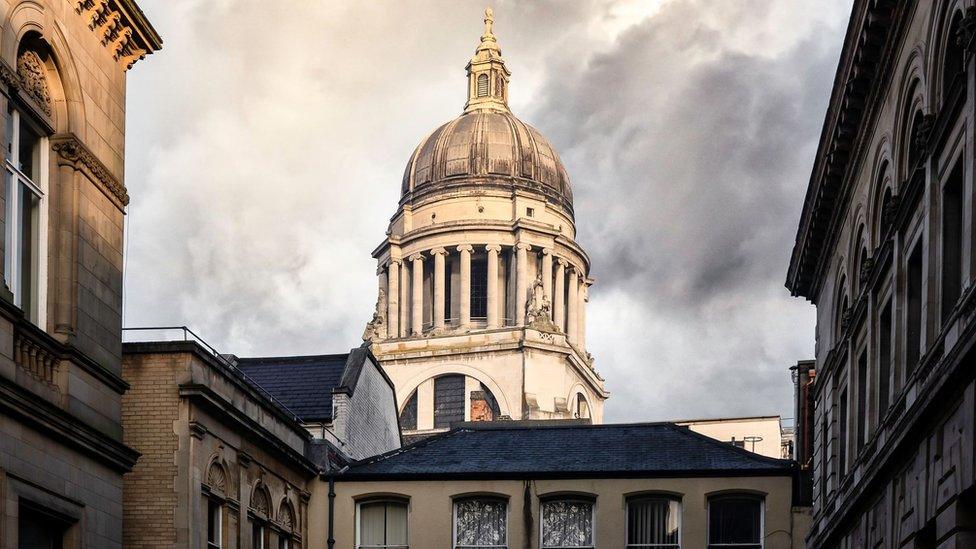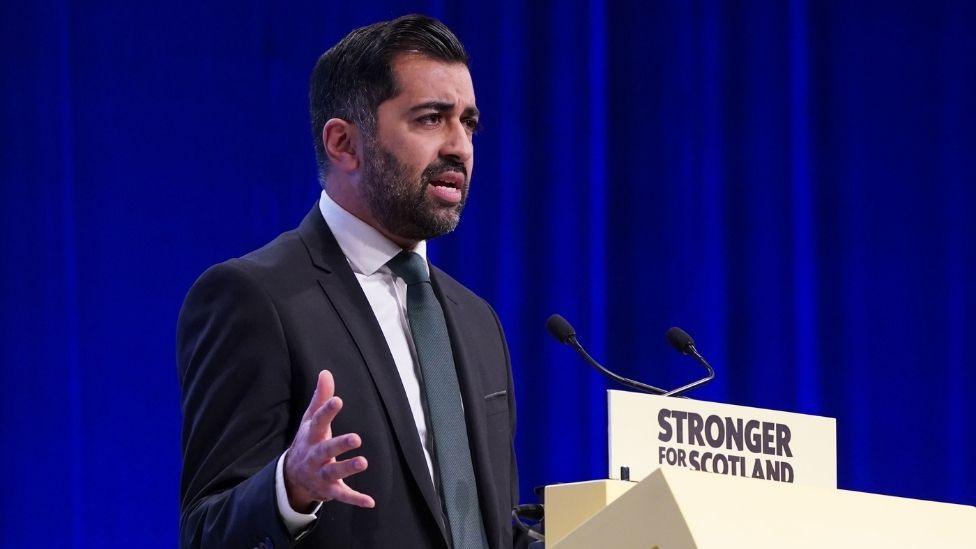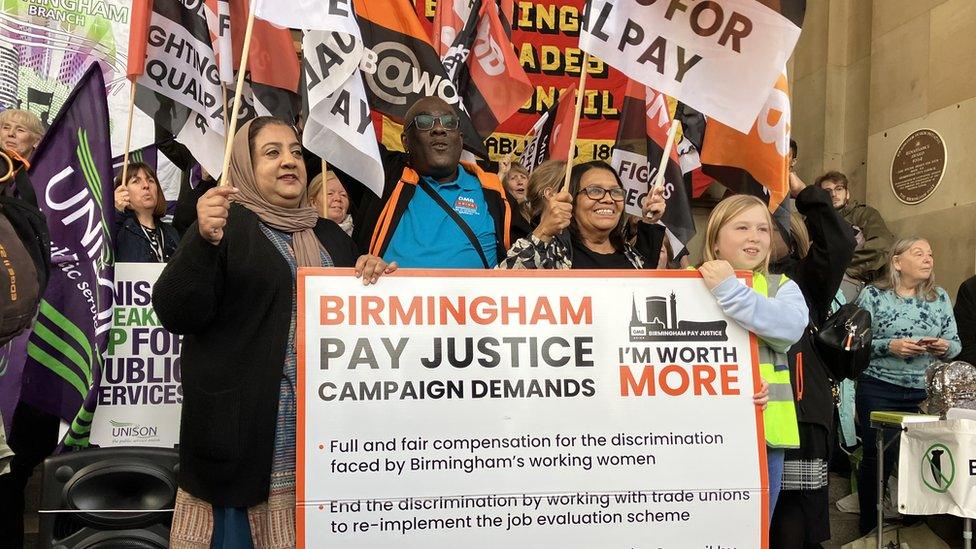Scottish councils warn of 'bankruptcy' risk without more funding
- Published

Local authorities are at risk of bankruptcy if funding from the Scottish government is not improved, council leaders have said.
Cosla issued the warning in a briefing paper ahead of the Scottish budget on 19 December.
The local government body said councils need nearly £14.4bn in the budget just to "stand still".
The Scottish government said it had given councils a real-terms increase of £376m, or 3%, this year.
Cosla's comments came after Birmingham and Nottingham city councils effectively declared themselves bankrupt.
Both authorities have issued Section 114 notices, which prevent spending on virtually everything apart from statutory services.
In its briefing paper, Cosla stated: "There is a risk this becomes the reality for Scottish councils if the funding by Scottish government does not match growing cost pressures."
A council tax freeze was announced by First Minister Humza Yousaf in October.
No details have emerged on how much money councils will receive to compensate for this.
The Scottish government insisted the policy would be fully funded.
'Challenging budget'
Cosla resources spokeswoman Katie Hagmann said that "tough choices" could mean essential services they provide "will cease".
She added: "Our reality right now is an extremely challenging financial climate coupled with years of real-terms cuts to council budgets, while additional policy commitments are continually being introduced.
She said Cosla had been "clear that cutting frontline staff isn't the answer" and without funding councils would not be able to provide "sustainable public services".
Scottish Conservative finance spokesperson, Liz Smith MSP, said Cosla's warning was a "damning indictment on years of brutal SNP cuts".
She added "Scotland's local authorities have been struggling to provide core services for years now and it appears they may finally be nearing breaking point."
The Scottish government said it was facing "the most challenging budget settlement since devolution" as a result of high inflation and a UK government autumn statement that "failed to deliver the investment needed" in Scotland.
A spokesperson said: "The Scottish Government has increased the resources available to local government in 2023-24 by more than £793m, a real-terms increase of £376m or 3%, compared to the 2022-23 Budget figures.
"Decisions on local government budget allocations for future years are subject to the outcome of negotiations with Cosla, the results of which will be confirmed in future Scottish budgets."


Scottish councils are under a legal duty to produce a balanced budget each year.
As such, they cannot go bankrupt in the true sense.
If necessary they can use their cash reserves to produce balanced budgets although the reserves of some councils are getting low.
But what would happen if a council failed to agree a budget? Perhaps because the options for balancing the books were too controversial?
In the past councils have warned this was a possibility.
Were a council to fail to produce a budget, its responsibilities could be taken over by Scottish government civil servants.
Councils are still waiting to hear how much money they will get from Holyrood to fund next year's council tax freeze.
Inflation and energy bills have added to their financial challenges.
The other major question is whether councils will actually go ahead with proposals for controversial cuts in services - such as Stirling's proposal to close all but one of its libraries.
Two months ago North Lanarkshire abandoned plans to close many libraries and leisure centres after a local outcry.
But while certain cuts may prove politically unacceptable, the need to produce balanced budgets remains.
Were civil servants to take over responsibility, the expectation would be that they would be more likely to take the unpalatable decisions which councillors may find politically impossible.
- Published1 December 2023

- Published29 November 2023

- Published24 October 2023
- Published17 October 2023

- Published10 October 2023
